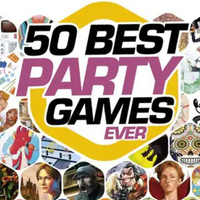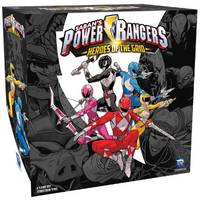29 April 2022
|
Moods on a map
First Empires imagines an alternate history where five early, less well-known civilisations rise to become the great empires of the world, and proceed to replicate the violent struggle for territory and power of our more familiar ones.
Rarely has a little game looked so impressive straight out of the box – custom meeples for each civilisation, asymmetric player boards with recesses for your tracker cubes to slot into, custom dice for the game’s resources. Each civilisation gets its own deck of little achievement cards with – get this – its own deck box that holds its tokens and meeples as well.
Yes, these are small matters of aesthetics, but it makes such a difference when you start the rules explanation and you get hand new players their own little deck box full of stuff. It makes the game feel exciting before you’ve started to play and it gives the sense of a production process that’s had thought and love poured into it.
First Empires looks like a classic soldiers-on-a-map civilisation game, and thematically, it is, but the heart of what you’ll need to do happens on your civilisation board. It’s here that you’ll spend resources from the dice you throw each turn to raise your civilisation’s development in five areas. These five areas allow you to, respectively: roll more dice, reroll more dice, move your meeples – representing explorers – farther, draw more achievement cards and gain more meeples.
Each civilisation’s board is arranged a little differently in terms of how far you have to advance to get what reward, and how many victory points you earn. Hitting certain milestones mean you have to place a city in one of your territories, worth 1-3 victory points at the end of the game. Placing a city is often not something you want to do – it’s like a golden apple pie left cooling on a sill, and your opponents can invade and claim the points for themselves.
But unlike the prototypical civ/war game, First Empires is surprisingly, pleasantly forgiving when it comes to losing territory. Fights are simple affairs, resolved by whoever has the larger force, augmented by dice with swords on. The loser moves their troops to another of their territories, and you can’t be invaded i f you’ve only one territory left.
f you’ve only one territory left.
You can’t cash in resource dice unless you control a territory with a matching symbol, and certain achievement cards might require you to control a certain number of territories to claim the victory points, so everyone’s always got a reason to be pushing each other around. But it never feels personal, and a territory gained one turn will likely be lost the next.
The flipside to this easygoing trading of land is that some – most, even – of the game’s events can feel a bit inconsequential. It’s nice to have a civilisation game where mistakes aren’t brutally punished and players don’t get eliminated, but sometimes the decision space feels a bit baggy, like you can do almost anything and it’ll be about as viable as anything else.
Certainly there’s some nuance that doesn’t become apparent until a few games in – the achievement cards offer some hidden depth. First-time players will probably overlook just how many points you can pick up by drawing new cards and completing the simple missions. Similarly, when to place your cities is something of an art – generally the answer is the later the better.
How much each city is worth is hidden information until the end of the game. This was obviously intended to increase tension by making the final scores opaque until the game is over, but it also robs players of agency. Most of the time, it means the winner of this clash of empires is decided by flipping a few cardboard tokens. Rather than an exciting finale, it can make the end of the game a bit anticlimactic – you might as well have just flipped a coin.
Tim Clare
PLAY IT? MAYBE
First Empires is a welcome attempt to make a lighter, friendlier title for the ever-popular civ genre. It’s beautifully presented, easy to learn, and doesn’t take an entire day. It just feels a bit fuzzy round the edges, design-wise. Not world-conquering, but its undeniable charms might make it one for those pining for a gentler form of conquest.
TRY THIS IF YOU LIKED Quantum
The closest analogy in terms of where it stands relative to its genre is space colonisation game Quantum, which turned space battles, tech trees and claiming planets into something you could see out in under an hour.
Designer: Eric B Vogel
Publisher: Sand Castle Games
Time: 60 minutes
Players: 2-5
Ages: 10+
Price: £30
What’s in the box?
- Game board
- 30 City tokens
- Turn track marker
- 25 Civilisation markers
- 45 Achievement cards
- 5 Dice
- 50 Explorers
- 5 Storage boxes
- Turn track board
- 5 Civilisation boards
Looking for more?

This review came from Tabletop Gaming Magazine, which is home to all of the latest and greatest tabletop goodness. Whether you're a board gamer, card gamer, wargamer, RPG player or all of the above, find your copy here.
Get your magazine hereRead More...

If you like party games, this is the one to read – a feature straight from our special issue of Tabletop Gaming Magazine giving you the top 50 party games ever. You'll have to let us know which one would be your number one!
Grab your party hat!
Join us in person

We can't wait for Tabletop Gaming Live 2022! An epic weekend in Manchester full of board games, card games, roleplaying games, wargames and more, with amazing exhibitors, great games, and an opportunity to game together in person.
See you there!Treat Yourself!

Have you visited our game store? We have everything from mystery boxes, to games and accessories – including the above Power Rangers: Heroes of the Grid, with a great discount! Head over to find your new favourite game.
Visit the Game StoreSometimes we may include links to online retailers, from which we might receive a commission if you make a purchase. Affiliate links do not influence editorial coverage and will only be used when covering relevant products








Comments
Login or register to add a comment
No comments